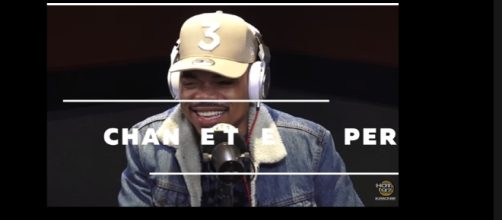The Opioid epidemic in America has become a growing concern. In a stunning statistic, 91 people die every day due to an opioid overdose. According to Vox News, the problem has reached the point that these deaths are causing the average life expectancy to slightly diminish. Companies, congressmen, and the community are taking proactive measures to raise awareness to this problem. CVS has limited opioid prescriptions to seven days in order to decrease chances of addiction. Congress began funding several drug abuse programs to help those struggling with addiction while local communities have brought the issue to lawmakers in hope for grassroots action.
The opioid epidemic is affecting everyone, especially rappers.
Opioids in rap
The use of opioids in rap has grown over the year, according to EPU and the difference between rappers and regular citizens affected is that rappers talk about their addiction to millions of people through music. This is potentially dangerous. Addicts have difficulty admitting that they have a problem in the first place. So they normalize their addiction and use it as a way to make their song better. The drug use gets glorified, and impressionable teens want to experiment and have the same feeling as these rappers.
The 'feel good' of opioids
As hip-hop progressed, rappers have shifted from being drug dealers to being drug users.
They create narratives of how their lives get better after taking multiple prescription drugs. They even admit to using drugs as a means to get away from the everyday struggles of life. Some rappers glorify the drug use to where it's a part of their rap persona. For example, Lil Pump, a 17-year-old rapper, constantly talks about his opioid use of songs. For his birthday, he got a giant Xanax cake and posted it to his 2.9 million Instagram followers. Rappers unknowingly popularize these drugs to their fan base, some of whom are underage. Impressionable, underage listeners are especially at risk when they don't know just how strong opioids can be.
Popularizing opioids
The most dangerous part of the opioid epidemic is that it has been going on for quite some time, but no one really spoke against it.
I'm glad now that it is getting the attention it deserves recently, but a lot of it could have been prevented if rappers knew about the problem ten years ago. Over the last ten years, opioids have been a catalyst for rap songs with a lot of listeners reciting drugs they don't even know are opioids. Some examples of opioids we hear in rap songs are OxyCotin, Vicodin, Percocet, morphine, and Xanax. They are in popular, sometimes award nominated songs. People mindlessly listen to the lyrics without a second thought or take what rappers say at face value.
Concluding thoughts
Opioid addiction has been a serious problem throughout the last decade. The rappers who talk about their addictions need help just like the everyday people that these statistics cover.
They are not rapping about opioids because they think it's cool. The "good" feeling that they have is just a temporary escape from their problems in life. Do not take the lyrics as glorification or endorsement of opioids. Take it as a cry for help.


